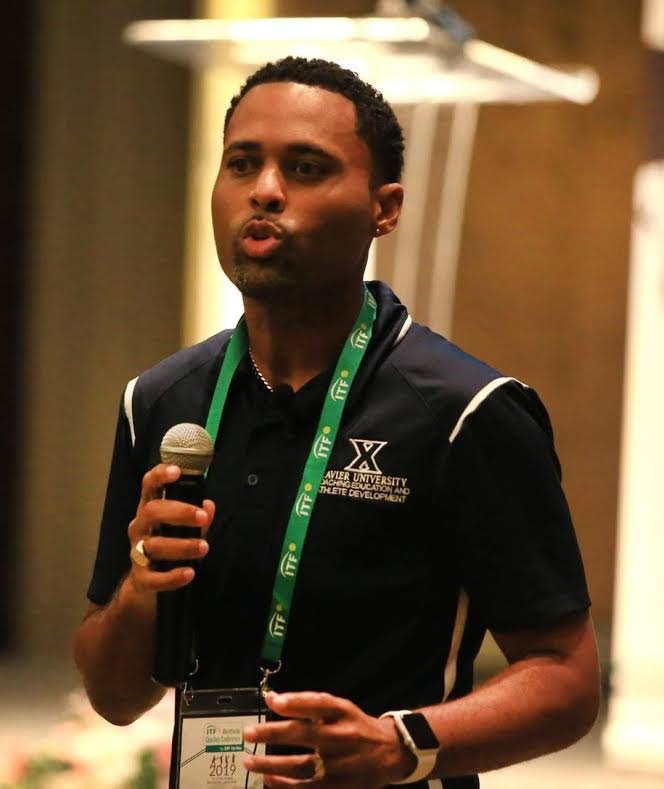Hannays: Tennis coaching education crucial

TENNIS ASSOCIATION of TT (TATT) head of coaching and development, Kyle Hannays became the first Caribbean coach to be published in the International Tennis Federation (ITF) Coaching & Sport Science Review: Issue 80 with his article entitled "Attitudes of tennis coaches towards continuous education: a Caribbean perspective”.
Having set a milestone achievement for regional tennis in 2019 by being first Caribbean coach to present at the ITF World Conference in Thailand, Hannays’ article highlights issues faced by Caribbean coaches and dives deeper to gain a better understanding of these issues.
According to the national tennis coach, the concept of coaching education has been gaining traction within the athletic sphere. He believes coaching education is a developmental strategy which sees the coach assume the role of learner within an environment geared towards achieving specific personal or professional goals, through the provision of training and guidance.
Hannays declared the region is overflowing with both athlete and coaching talent but admitted development seems almost stunted and “performance outcomes remains less than favourable”.
In his article, the seasoned tennis enthusiast revealed that even though several developmental courses are offered throughout the year, they are very poorly attended by the coaches within the Central American and Caribbean Tennis Confederation region.
He explored further and undertook a study examining the attitudes of Caribbean tennis coaches towards continuous coaching education in an attempt to learn how it may influence tennis success within the region.
By use of a mixed methodology, Hannays applied a modified coaching education questionnaire and semi-structured interviews with four Caribbean coaches of varying rank and experience; all hailing from different countries. Their responses were then analysed and critically evaluated.
Nine motivational factors to coaching education were outlined and participants were asked to rate how significant each role played in their decision to pursue coaching education. The quartet was also asked seven questions aimed at ascertaining their perceptions on coaching education.
During his investigation, the results revealed the attitudes of Caribbean tennis coaches towards amplifying their coaching education were positive.
“One hundred percent of the participants agreed that coaching education was important for youth sport coaches, 80 percent of which expressed plans to pursue education in the future. Despite the overwhelming acceptance of its role, several other factors impact the frequency of pursuit,” he stated.
“These include compliance of coaching education and individual philosophy, online availability and continuity as well as issues related to funding by government sporting bodies and the perceived value of experience,” Hannays added.
His analysis also indicated courses lacked continuity necessary to ensure that coaches maintain the highest calibre of practice following their certification. Highlighting his findings however, was full agreement from all participants of the reluctance from sporting bodies to fund coaching education, a factor which greatly affects coaches’ willingness to participate in such developmental programmes.
Having completed the investigative process, the results showed course may not be adequately catering to the needs of coaching practitioners in a meaningful way.
“Therefore, in order to address the issue of underperformance and encourage coach development through educational programmes, more effort needs to be directed at meeting the educational needs of the coaches,” he said.
Hannays concluded, “Additionally, issues such as disgruntlement of coaches who feel undervalued and inadequate exposure must be addressed in real and tangible ways. While exploration of this topic is by no means complete, there is now a better understanding that can guide future developmental efforts.”


Comments
"Hannays: Tennis coaching education crucial"